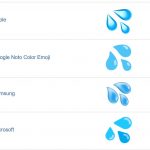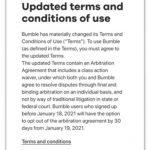
Q&A About Emoji Law
I did another interview on emoji law that I thought was worth sharing here. * * * 1. Please tell me about your childhood and young adulthood. Did you play games (ie, Atari, Nintendo) that required you to “read” icons…

Schedule A (SAD Scheme) Plaintiff Sanctioned for “Fraud on the Court”–Xped v. Respect the Look
This is one of the thousands of “Schedule A” cases, a phenomenon I’ve labeled the “SAD Scheme.” (Technically, the defendants in this case are enumerated on “Exhibit 1” instead of “Schedule A,” but same thing). The court describes the phenomenon:…

More Chaos in the Law of Online Contract Formation
Another 3k+ word post about the jurisprudential chaos in online contract formation law. You’ll notice that this post gets increasingly surly as the cumulative effect of the judicial inanity weighed on me. Two top-line takeaways you might get from this…

A Single Emoji Could Constitute Securities Fraud–In re Bed Bath & Beyond
This case involves Ryan Cohen, who made a fortune running Chewy.com and then switched his interests to meme stocks. He bought a 9% interest in the failing retailer Bed Bath and Beyond, hyped the stock, and then liquidated his position,…
Amazon Screws Up Its TOS Amendments (Again)–Jackson v. Amazon
This case involves “Amazon Flex” drivers. Allegedly, “Amazon monitored and wiretapped the drivers’ conversations when they communicated during off hours in closed Facebook groups.” Amazon claimed its TOS mandated arbitration. The Ninth Circuit disagrees. At issue are two versions of…

What Does the “Water” Emoji Mean? Perhaps Not What You Think–US v Swanagan
[Just a reminder that there are no “off-limits” topics in Internet Law. So yes, this post is going to go there.] Law enforcement took down a methamphetamine ring in Kentucky. Based in part on Facebook messages between two defendants that…
Does Possession of Memes Show Criminal Intent?–People v. Watts
This is a rape case. Law enforcement found the following items on the defendant’s phone (warning–explicit and offensive descriptions): three photos with accompanying text, which the State argued expressed “the idea that a male has a right to have sexual…

When Do Defendants Have Access to Copyrighted Works Posted to the Internet?–Cooley v. Target Corp.
This case relates to Target’s “Cat & Jack” clothing line. The plaintiff, NOC, is a teenager who has copyrighted designs in hand-drawn dots that Target allegedly copied in the clothing line. Target and NOC had some direct dealings, including bringing…

Amending Your TOS? Better Use a Clickthrough Process, Not Email Notice–Alkutkar v. Bumble
Alkutkar used the dating app Bumble. He paid money to get extra visibility for his dating profile and claims he got poor results, so he sued Bumble for false advertising. Bumble successfully redirects the case to arbitration based on its…
When Will Courts Admit Rap Videos/Lyrics Posted to Social Media as Evidence?–US v. Wiley
The federal government is prosecuting Wiley for drug dealing. The government seeks to introduce as evidence YouTube videos that Wiley posted showing him “holding unknown sums of cash, sitting in or near various luxury vehicles, and performing rap songs that…
